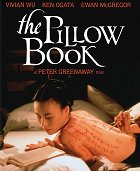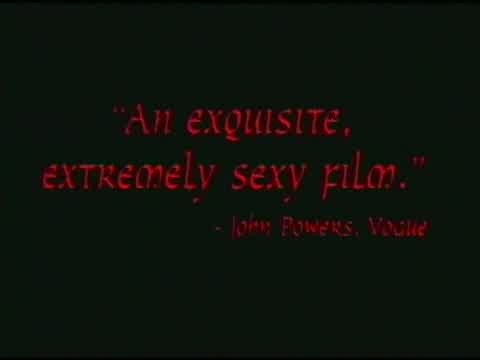Regie:
Peter GreenawayScenario:
Peter GreenawayCamera:
Sacha ViernyActeurs:
Vivian Wu, Ken Ogata, Ewan McGregor, Ken Mitsuishi, Chris Bearne, Mennan Yapo, Ronald Guttman, Adrian Kwan, Jim Adhi Limas, Ham-Chau Luong, Arnita Swanson (meer)Samenvattingen(1)
Nagiko had als kind bijzondere verjaardagen. Haar vader Kalligrafeerde een gelukwens op haar gezicht en haar tante las voor uit 'The Pillow Book'. Dit dagboek van de Courtisane Sei Shonagon uit de tiende eeuw inspireert de volwassen nagiko tot een eigen dagboek. (PolyGram Filmed Entertainment Distribution)
Recensie (1)
"Peter Greenaway's fascinating film The Pillow Book opens with heroine Nagiko's birthday ritual. We see her father gently painting a birthday greeting on her face. These images indicate how influential Lacan's ideas about our initiation into language, the symbolic and the law of the father have become. Lacanian notions of subjectivity and textuality are further invoked when Nagiko sees her own written-upon reflection in a mirror..." (An Introduction to Critical Social Psychology, Alexa Hepburn, p. 87). One interpretation understands Greenaway's work as highly post-structuralist, The Pillow Book is completely so, both in form and content. Greenaway's cinematic exploration of language here goes so far as to grasp language as a sovereign sphere of desire and pleasure, inseparably intertwined with bodily pleasure, always captured in language. This sovereign power of language is materialized by the use of writing, in which not only the materiality of language and the reality of its effects are prominently manifested, but also through the use of Japanese characters (mysteriously beautiful and "delightful" to a European, the mystery of this signifier's essential inscrutability, through which we are compelled to seek fulfillment of our desire. /// Greenaway additionally dissolved this power of the sign into the entire film by using that unique overlay of shots and images, which connect image and writing through a continuous series of overlaps, just as the characters connect their bodies with the signs. /// Of course, the film is not perfectly Lacanian or Barthesian, but no reader of their works should miss reading this film.
()

